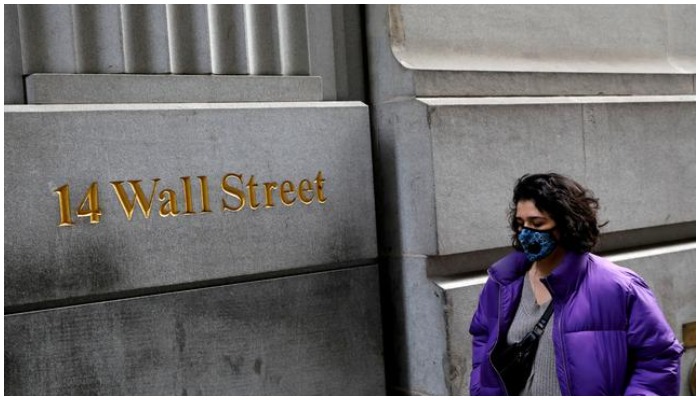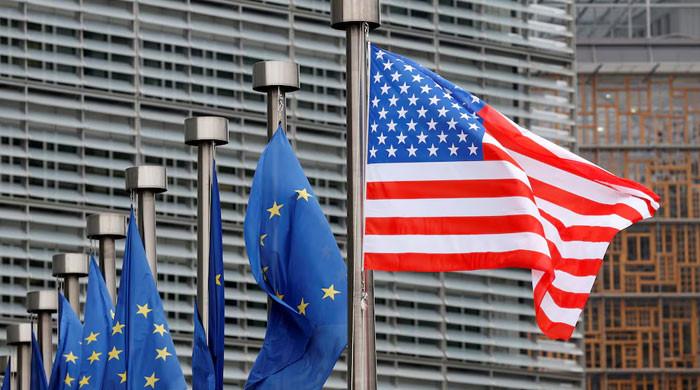Wall Street gradually opening up to women amid prevalent gender inequality
Employment figures demonstrate the mountains that still have to be moved to achieve gender parity.
March 01, 2021

- Despite a prevalent sexist environment on trading floors, the finance world is gradually opening up to women.
- Progress in gender equality recently seen after Jane Fraser became head of Wall Street banking flagship Citigroup.
- Employment figures, however, demonstrate the mountains that still have to be moved to achieve gender parity.
NEW YORK: Despite smutty jokes and pin-up photos long been commonplace on trading floors, the finance world is gradually opening up to women -- underlined by the arrival on Monday of Jane Fraser as the head of Wall Street banking flagship Citigroup.
Her elevation marks "a milestone," according to Lorraine Hariton, director of Catalyst, an organisation that promotes women in the workplace.
"But there is also a long way to go," she said.
Employment figures demonstrate the mountains that still have to be moved to achieve parity between men and women in the financial services sector.
Women in 2019 made up more than 50% of employees in the field in the United States, but only 22% of managers -- leaving aside the highest positions -- according to a report by Deloitte.
Current trends predict that figure will rise to 31% by 2030. And male financial analysts earned 17% more on average in 2020 than their female counterparts.
Several women told AFP that women have to work harder than men to climb the ranks, and have to be seen as beyond reproach.
Prestigious professions and those that pay the most, like investment bankers and traders, still remain strongholds of white men. And sexist remarks still come out from time to time.
"For every Jane Fraser, there are hundreds, if not thousands, out there," said Muriel Wilkins of the executive consultancy firm Paravis Partner.
"Are they being provided with the opportunities to be able to advance?" she said.
But the old certainties have started to shift.
Women´s network
Vague promises about the need to diversify recruiting have gradually led to some real reflection on the issue.
"Slowly more leaders... are starting to think and to talk about what it means to have equity in their organization... and which structures they can put in place so that it is not just on women," said Muriel Wilkins.
At JPMorgan Chase, America´s largest bank by asset size, there has long been an informal women´s network.
In 2013, women at the most senior level started organizing women-only meetings while on business trips around the world so that they could hear employees´ thoughts.
Read more: Pakistan ranked second worst country in terms of Gender equality: WEF report
Company head Jamie Dimon wanted to formalize these various initiatives and so in 2018 the "Women on the Move" program was created, said project manager Sam Saperstein.
"It allowed us to reinvigorate what we were doing with HR, with training and just pull everything together and elevate it in a clear strategy across the firm," she said.
The initiative organized a career development program open to all women in the company. About 500 participated in the first session last year, and 2,000 have applied for the second.
Sponsorships
To tackle the citadel of asset management, which is still the preserve of men, the organization "Girls who Invest," founded in 2015, has set itself the goal of having 30% of the money invested in funds worldwide managed by women by 2030.
Women currently represent only 6% of managers in venture capital companies, according to the group, and only 3% in hedge funds.
The organization wants to prove that contrary to popular belief, women are not at all turned off by the job: companies just have to go out and find them.
It scours university campuses to recruit students, train them and offer them internships.
"The industry had moved tremendously in the past five years," said director Katherine Jollon Colsher.
"More and more firms are now having 50% female analyst classes and are focused on those same numbers at the associate level."
"Measurement and holding people accountable is critical to make a change," said Lorraine Hariton of Catalyst.
Michael Corbat, Jane Fraser´s predecessor, was one of the first in the industry to release statistics on diversity within his firm.
It is also essential, Hariton said, for companies to put in place support measures, whether it is sponsorship programs or parental leave.
Read more: Guterres urges for an end to 'stupid' gender inequality











